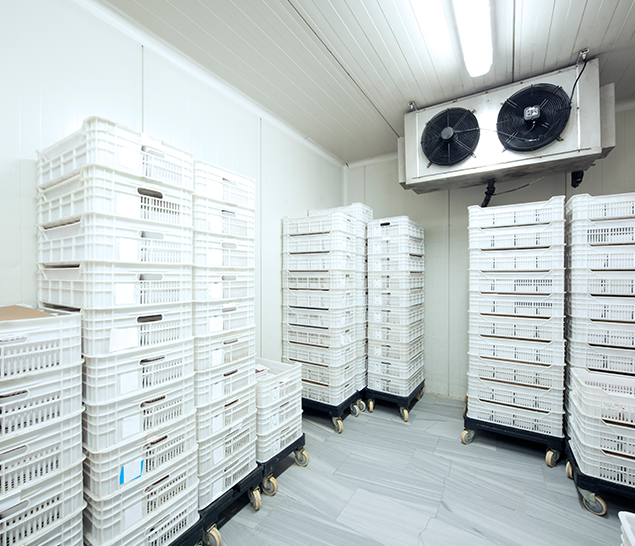Cold Chain Logistics
In the world of cold chain logistics, where the integrity of perishable goods such as pharmaceuticals, food products, and biological samples is paramount, maintaining precise environmental conditions is essential. However, one often overlooked aspect of this process is humidity control.
Humidity plays a critical role in the cold chain industry, where the transportation and storage of temperature-sensitive goods occur under tightly controlled conditions. Uncontrolled humidity can lead to several issues that compromise the quality, safety, and shelf life of products.
Collapsible content

Preventing Condensation and Frost Buildup
In cold storage environments, fluctuations in temperature and humidity can lead to condensation on products and packaging. This moisture can freeze, resulting in frost buildup on goods, which can degrade the quality of food products, damage packaging, and increase the risk of contamination.
Commercial dehumidifiers help to maintain consistent humidity levels, preventing condensation and ensuring that products remain in pristine condition throughout their journey.
Maintaining Product Integrity
For perishable goods, such as fresh produce, seafood, dairy products, and pharmaceuticals, maintaining the right balance of humidity is crucial to preserving their quality.
Excess moisture can lead to spoilage, mold growth, and other forms of degradation that shorten shelf life and reduce the value of the goods. By using dehumidifiers to control moisture levels, cold chain logistics providers can ensure that products retain their freshness and efficacy from the point of origin to the final destination.
Enhancing Energy Efficiency
Cold storage facilities and refrigerated transport vehicles require a significant amount of energy to maintain low temperatures. High humidity levels can increase the workload on cooling systems, leading to higher energy consumption and operating costs.
Dehumidifiers help to optimize the efficiency of these systems by reducing the moisture load, leading to lower energy usage and more cost-effective operations.
Protecting Packaging and Labels
In the cold chain, the integrity of packaging and labels is just as important as the product itself.
Moisture can cause labels to peel, ink to run, and cardboard or paper packaging to weaken. This not only impacts the appearance and professionalism of the product but can also lead to logistical challenges, such as difficulties in tracking and identification.
Dehumidifiers play a key role in maintaining the condition of packaging and labels, ensuring that they remain intact and legible throughout the distribution process.
Ensuring Compliance with Industry Standards
The cold chain industry is subject to strict regulations regarding the storage and transport of temperature-sensitive goods. These regulations often include specific requirements for humidity control to prevent product degradation and contamination.
By implementing commercial dehumidifiers, cold chain logistics providers can ensure compliance with these standards, avoiding costly penalties and ensuring that goods arrive safely and intact.
Buying Guide
To select the perfect Argendon dehumidifier for your needs, consider the following:
1. Assess Your Space: Evaluate the size of the area you need to dehumidify and its current humidity levels.
2. Choose the Right Capacity: Select a dehumidifier with the capacity suited to your space requirements for effective moisture control.
3. Energy Efficiency: Opt for models that offer energy-efficient performance to save on long-term operational costs.
4. User-Friendly Controls: Look for models with easy-to-use controls for straightforward operation.
5. Maintenance: Regular upkeep is essential to extend the lifespan of your dehumidifier and ensure its continued efficiency.

